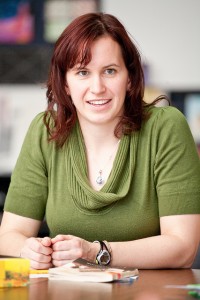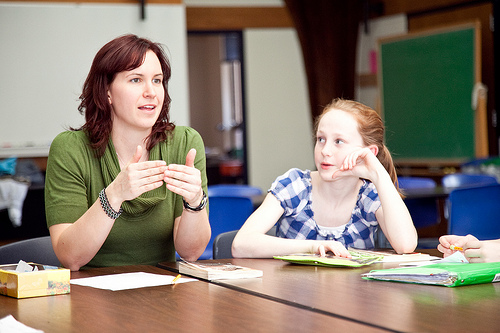In a classroom version of the highly successful State Constitutional debate competition known as “We The People”, the 8th grade students in Ms. Williams’ civic class demonstrated their prowess to a panel of judges. Luckily for me, I was one of them.
 “We the People” has been promoted by Mr. Peter Gunn for over a decade with Williston Northampton’s AP US History students. Earlier this year, Andrew Syfu’s 8th grade class also tackled the debates—with great success.
“We the People” has been promoted by Mr. Peter Gunn for over a decade with Williston Northampton’s AP US History students. Earlier this year, Andrew Syfu’s 8th grade class also tackled the debates—with great success.
The 8th graders read prepared responses to challenging constitutional questions (for instance, “do you believe there are times when freedom of expression should be limited?”). Groups of three students presented to a three-judge panel.
As judges, we were able to ask follow-up questions. The students parried and responded with thoughtful examples, clear counterpoints, and an occasional, “Could you please repeat the question?”
So what did I take away from this? If the ability to prepare a cogent and specific written argument matters, if the skill of listening carefully matters, if collaborating with peers to achieve a common goal matters, then the 8th grade civic’s exercise was a complete success.
At one point, Mrs. Sawyer remarked on how one young person’s nuanced reply “sounded like a lawyer” and reminded us all how nimble teenage minds really can be.
Oh, and the audience of middle school students were also attentive, respectful, and engaged. All in all, it was quite a morning treat in Whitaker-Bement.



 We all need to be learners in the virtual classroom. Dr. Sameer Hinduja educated Williston students on Tuesday (and a gathering of parents the evening before) about the clear and present dangers of teenage use of social media.
We all need to be learners in the virtual classroom. Dr. Sameer Hinduja educated Williston students on Tuesday (and a gathering of parents the evening before) about the clear and present dangers of teenage use of social media.